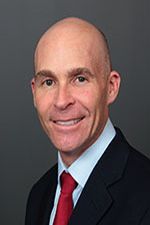Among the off-gridiron stories getting attention during this year’s Super Bowl was the brainstem tumor that sidelined Rams quarterback Matthew Stafford’s wife in 2019.
The condition – a skull base disorder called acoustic neuroma, or vestibular schwannoma – was benign, and Kelly Stafford appeared healthy and happy as she watched her husband’s team beat the Cincinnati Bengals in the Super Bowl, but her story heartened brain specialists who treat this type of brain tumor.
“These benign tumors are one of the most common in the brain, affecting one in every 100,000 people,” said Dr. Marc Eisen, a neurotologist with the Ear Specialty Group of Connecticut and affiliated with the Hartford HealthCare Ayer Neuroscience Institute. “They grow from the covering of one of the nerves that runs from the brainstem to the ear.”
Symptoms of an acoustic neuroma include:
- Hearing loss.
- Ringing in one ear.
- Dull headache.
- Imbalance and vertigo.
The imbalance was the symptom Kelly Stafford first noticed soon after having her third child. Medication didn’t help and an MRI confirmed the presence of a tumor, which was later removed during a 12-hour surgery.
Large tumors, Dr. Eisen noted, can become life-threatening if they begin to compress the brain stem, although that situation is unusual.
“Some of them do not grow and do not have to be treated, but they need to be monitored” he said. “For those that need treatment, options include focused beam radiation therapy and microsurgical removal.”
Many acoustic neuromas can be monitored for any growth, and Ayer has assembled an expert multispecialty team to support patients with disorders of the skull base. This includes Dr. Eisen, neurosurgeon Dr. Paul Schwartz, and other experts in neurosurgery, neurotology, neurohinology, audiology, ophthalmology, endocrinology and radiation oncology.
“Surgical removal can sometimes save hearing, but that depends on the size of the tumor and other factors. Surgical removal is typically curative,” Dr. Eisen said.
Anyone experiencing troubling symptoms should speak with their primary care provider, who can make any necessary referrals or advanced follow-up. The multispecialty approach at Ayer allows the team to coordinate care and create individual plans of care for each patient.



